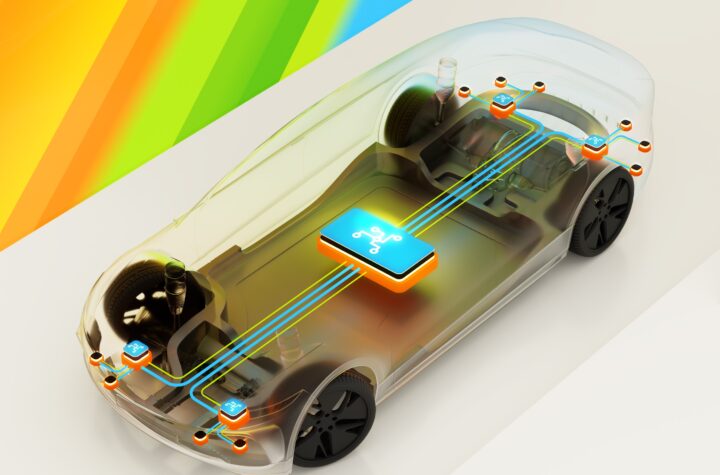
The climate change summit got off to a good start with a fuel change. For the first time ever, the fleet of VIP limousines switched to a climate-friendly fuel — The New Ethanol, made from straw by the Danish company Inbicon. So when the politicians are traveling around Copenhagen this week and next during the United Nations Climate Change Conference, it will be in cars powered by a climate-friendly E85 fuel. This particular blend of 85% ethanol cuts emissions of the primary greenhouse gas (CO2) 84% compared with conventional gasoline.
The climate-friendly fill-up came about as a collaboration between Danisco’s enzyme division Genencor, Inbicon Biomass Refinery Technology, Novozymes, and Statoil, assisted by the Partnership for Biofuels. The Danish Ministry of Foreign Affairs is supplying the limousines: 30 Volvo S80s and 10 Volvo V70s will be chauffeuring politicians from all over the world during COP15. Among those present at this first official filling-up with E85 in Denmark were senior representatives of the companies involved as well as Jan-Christoph Napierski from the Ministry of Foreign Affairs’ COP15 Logistics unit. “An event such as the UN Climate Change Conference attracts a large number of exciting new technologies, which could help to solve the climate challenge. This is why the Ministry of Foreign Affairs is pleased to be able to showcase a Danish contribution — advanced biofuel — to a green and climate-friendly Climate Change Conference,” says Jan-Christoph Napierski.
It is not just politicians who can drive around using advanced biofuel. Beginning in 2010, Statoil’s Danish customers will also be able to fill up with a fuel made using the latest technologies for developing clean, sustainable energy. The New Ethanol is produced by Inbicon, a technology subsidiary of DONG Energy, one of Denmark’s largest energy groups. Novozymes and Danisco’s enzyme division Genencor are supplying the enzymes for the biofuel production, and Statoil is providing the distribution facilities. The Partnership’s capabilities in producing advanced biofuel offer significant climate-related potential, allowing the widespread replacement of conventional fuel such as gasoline. Besides converting straw into ethanol, the current technology can produce it from corn stalks, leaves, and cobs; sugar bagasse; miscanthus grass; and other soft biomass. The development of advanced biofuel technology offers significant commercial potential through export of technological solutions and knowledge within the development and application of enzymes.
Facts about Inbicon A/S Inbicon technology produces fuel ethanol, solid lignin biofuel, and livestock feed from soft biomass. Since 2003 Inbicon has perfected its process at a pilot plant in Skaerbaek at Fredericia, Denmark, and in November the company inaugurated its first Inbicon Biomass Refinery in Kalundborg, which is open for tours during the climate summit. Commercial-scale production is planned for the U.S. beginning in 2010. Inbicon is a subsidiary of DONG Energy A/S. Find out more at www.inbicon.com.
Facts about Partnership for Biofuels Partnership for Biofuels aims to develop the frame conditions for Danish technology in order to produce second-generation biofuels. The partnership consists of Novozymes A/S, Inbicon A/S, Danisco A/S, Biogasol, Statoil A/S, Aalborg University, Agrotech, Solum Gruppen and the Danish Agriculture Council. The work is being followed by EUDP and The Danish Environmental Protection Agency.












More Stories
Automotive Industries (AI) Newsletter October 2024
How Modern Equipment is Reshaping Automotive Production Standards
Automechanika Shanghai 2024